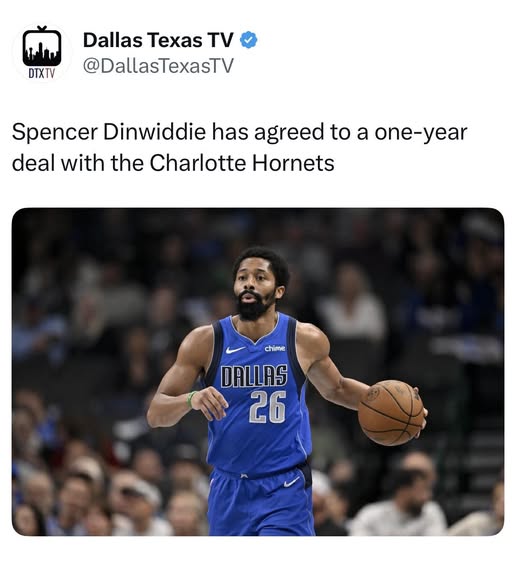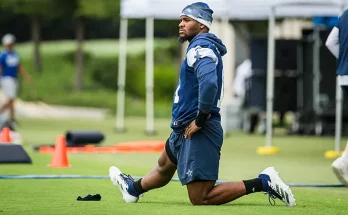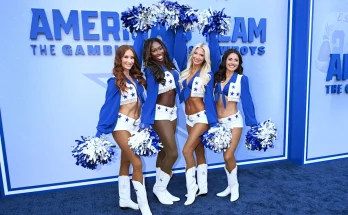Spencer Dinwiddie is no longer with the Dallas Mavericks, marking the end of a brief but impactful chapter in both his career and the team’s recent history. His departure leaves behind a mix of memories—some triumphant, some frustrating—but undeniably significant in the context of the Mavericks’ pursuit of contention in the Western Conference. Dinwiddie arrived in Dallas amid much fanfare, seen as a potential solution to the team’s secondary playmaking woes, and for a time, he delivered. But as the NBA landscape shifted and the Mavericks recalibrated their roster, Dinwiddie found himself on the move once again, a reminder of the league’s relentless pace of change and the fleeting nature of player-team relationships in modern basketball.
Dinwiddie’s journey to Dallas was anything but conventional. After a solid stint with the Brooklyn Nets, where he evolved from a fringe rotation player into a legitimate scoring threat and occasional closer, he was traded to the Washington Wizards as part of the blockbuster deal that sent Russell Westbrook to the Lakers. His time in Washington was productive but short-lived, and by February 2022, he was on his way to the Mavericks in a trade that sent Kristaps Porziņģis to the Wizards. At the time, the move was seen as a gamble for Dallas—they were giving up on the Porziņģis experiment, betting that Dinwiddie’s shot creation and playmaking could alleviate some of the offensive burden on Luka Dončić.
For a while, that bet paid off. Dinwiddie quickly endeared himself to Mavericks fans with his clutch performances, most notably in the 2022 playoffs. His ability to create his own shot and knock down big baskets in pressure moments was a revelation, particularly in a first-round series against the Utah Jazz. Dinwiddie’s scoring punch and steady hand in late-game situations helped Dallas advance, and for a brief period, it seemed like the Mavericks had found the perfect complementary piece alongside Dončić. His chemistry with the Slovenian superstar was promising, and his willingness to embrace a role as both a secondary ball-handler and an off-ball threat made him a seamless fit in Jason Kidd’s system.
But as the 2022-23 season unfolded, cracks began to show. Dinwiddie’s efficiency dipped, his three-point shooting regressed, and his defensive limitations became more pronounced. While he remained a capable scorer, his inconsistencies made it difficult for the Mavericks to rely on him as a true second option. The team’s struggles last season—particularly their failure to even make the play-in tournament—highlighted the need for more reliable contributors around Dončić. Dinwiddie, for all his strengths, wasn’t quite the answer Dallas needed to take the next step.
The arrival of Kyrie Irving at the 2023 trade deadline effectively signaled the beginning of the end for Dinwiddie’s time in Dallas. Irving’s elite shot-making and playmaking pushed Dinwiddie further down the pecking order, and while he continued to contribute in spots, his role diminished significantly. The Mavericks, desperate to maximize Dončić’s prime, were no longer in a position to wait for Dinwiddie to rediscover his best form. When the offseason arrived, it became clear that Dallas was looking to reshape its backcourt, and Dinwiddie was ultimately included in a trade package to the Brooklyn Nets as part of a larger deal to acquire defensive reinforcements.
Dinwiddie’s departure raises interesting questions about what might have been. Had he sustained his initial level of play in Dallas, would the Mavericks have felt the need to pursue Irving? Could he have been the long-term answer as Dončić’s backcourt partner if his shooting hadn’t fallen off? These are impossible to answer, of course, but they speak to the fine margins that define success in the NBA. Dinwiddie was never a perfect player, but at his best, he brought a toughness and creativity that elevated the Mavericks in key moments. His ability to attack closeouts, draw fouls, and make plays in transition added a different dimension to Dallas’ offense, particularly when Dončić was off the floor.
Beyond his on-court contributions, Dinwiddie’s presence in the locker room was also noteworthy. Known for his intelligence and off-court ventures—including his much-publicized foray into cryptocurrency and business—he brought a unique perspective to the team. His professionalism and veteran experience were valuable for a Mavericks squad that has often leaned heavily on young talent. Even as his role fluctuated, Dinwiddie remained a steadying influence, a trait that isn’t always easy to find in players navigating the ups and downs of an NBA season.
Now, as Dinwiddie moves on to the next chapter of his career, the Mavericks are left to ponder whether they could have extracted more from his tenure. His time in Dallas was neither a resounding success nor a failure—it was somewhere in between, a testament to the complexities of roster construction in today’s NBA. For Dinwiddie, the challenge will be rediscovering the form that made him such a coveted piece just a few seasons ago. For the Mavericks, the focus shifts to building around Dončić and Irving, hoping that the lessons learned from the Dinwiddie experiment will inform better decisions moving forward.
In the grand scheme of things, Spencer Dinwiddie’s stint with the Dallas Mavericks will likely be remembered as a footnote in the larger narrative of the franchise. But for those who watched closely, it was a compelling microcosm of the NBA’s relentless churn—a reminder that even talented players can become expendable as teams chase championship aspirations. Dinwiddie gave Dallas moments of brilliance, periods of frustration, and, ultimately, a trade that underscores the league’s unforgiving nature. Where he goes from here remains to be seen, but one thing is certain: his time with the Mavericks, however brief, left an imprint.
As the NBA continues to evolve, players like Dinwiddie—versatile, experienced, capable of swinging games in short bursts—will always have value. Whether he finds a long-term home or continues to bounce between teams, his skill set ensures he’ll remain a relevant figure in the league. For Mavericks fans, his departure is another reminder that in the pursuit of greatness, few things are permanent. Rosters change, roles shift, and players come and go. Spencer Dinwiddie’s exit is just the latest example of that reality—a fleeting but meaningful part of the Mavericks’ ongoing journey.



